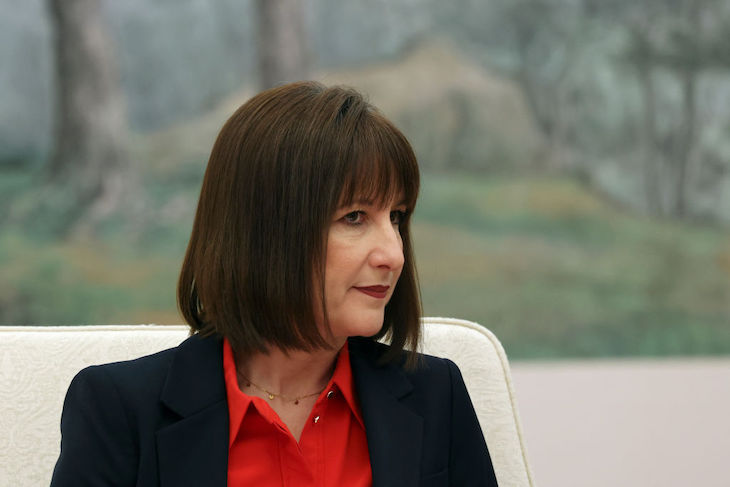International investors may be jittery about the UK’s future, but the International Monetary Fund appears to be more optimistic. The IMF has published its World Economic Outlook report for January, which forecasts the UK will have the third-fastest growth in the G7 this year. It revises upwards its projection for 2025, by 0.1 per cent, to 1.6 per cent.
The UK falling in after the United States and Canada does not make good on Labour’s promise to be the fastest growing advanced economy. But after a tumultuous week of gilt fluctuations, bad growth figures and an even worse retail sales update, it’s a good way to be ending the week.
Today’s report is one of the more optimistic forecasts for UK growth, not far off the Office for Budget Responsibility’s latest estimate, delivered alongside Labour’s first Budget in October, which forecast the economy to grow by 2 per cent this year. But unlike the OBR – which gave a rather tough assessment of the Budget – the IMF instead dished out rare words of support for Chancellor Rachel Reeves’s agenda after her fiscal statement last year.
‘We support the envisaged reduction in the deficit over the medium term, including by sustainably raising revenue,’ said an IMF spokesperson, who also praised the Labour government for its ‘focus on boosting growth through a needed increase in public investment while addressing urgent pressures on public services’.
Even though interventions are limited, the IMF has had no trouble over the years making its opinions known. The doomsday warnings around Brexit, published by the forecaster, had to be revised when a recession failed to hit. Repeated insistence that the UK would be the worst-hit advanced economy after Covid also had to be corrected: that title was ultimately awarded to Germany.
Then there was the significant intervention after Liz Truss’s mini-Budget in 2022 which, when borrowing costs were soaring, urged the Prime Minister to ‘re-evaluate the tax measures, especially those that benefit high-income earners’ as a course-correction. It’s interesting to note that no such intervention took place over the past few weeks, when government borrowing costs passed their mini-Budget peaks, estimated to have wiped out Reeves’s headroom. Despite heavy borrow-and-spend agendas contributing to surging borrowing costs multiple times now, only one was singled out as risky business.
All this raises the question: will the IMF have to backtrack once again? Forecasts are not crystal balls. Rather, they are a snapshot of current economic politics and circumstances, which are constantly changing in a global economy. But the IMF continues to praise the Labour government for its commitment to investment – a glowing way to talk about spending and borrowing, the latter of which Reeves has increased by £140 billion over the course of the Parliament. There remains a positive view within the UN institution that, despite growing criticism of Labour’s Budget, Reeves has indeed taken the right path to deliver better-than-expected results.
The Chancellor will be delighted to have an advocate in the IMF, just as she’s told the BBC that she won’t let her critics ‘get me down’ in the face of bond market turmoil. But not all fans and critics have equal weight in this debate. And while the IMF’s headlines today suggest Britain is marginally on the up – and point to bad news in the Eurozone, where Germany, Italy and France have all experienced downgrades – it will be international investors that decide where the real numbers fall.
It's those outcomes that are uncomfortable for Labour, as real growth numbers, for example, have hovered at zero since the new government entered Downing Street last July. Today’s forecast will be welcome, but it is predicated on the same assumptions that the government has made: that the expensive trade-offs being made to increase spending will translate to a bigger economy. It remains a gamble.







Comments